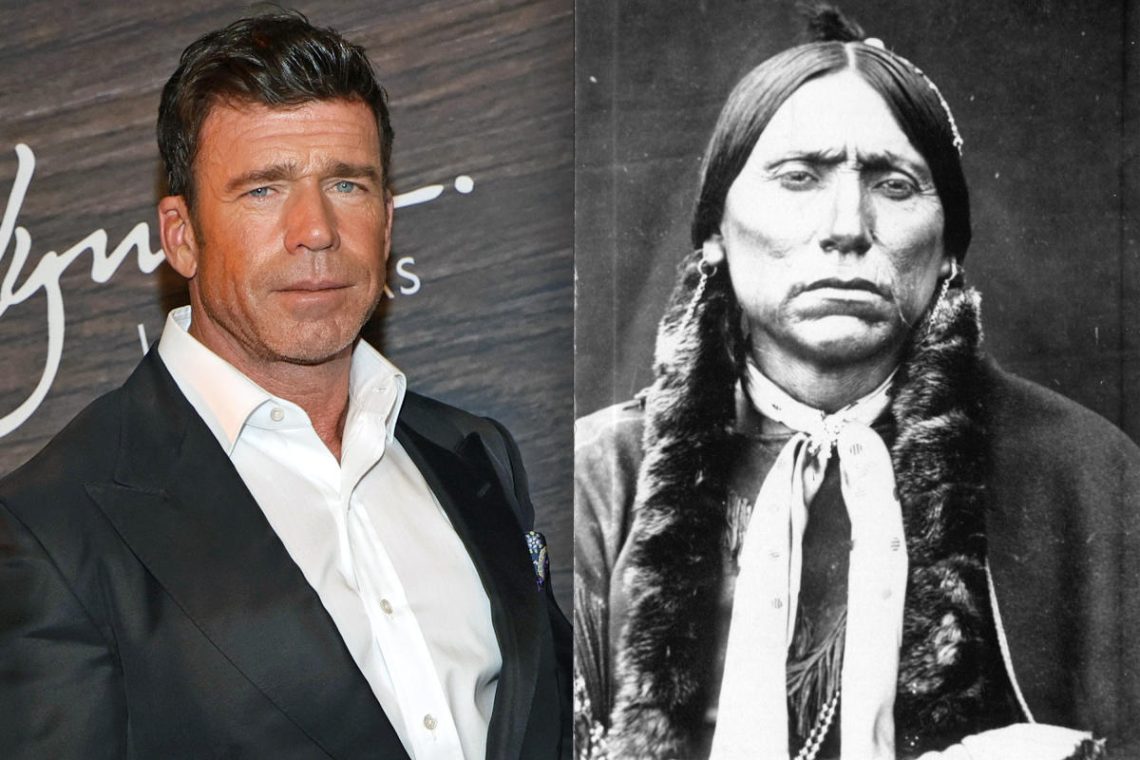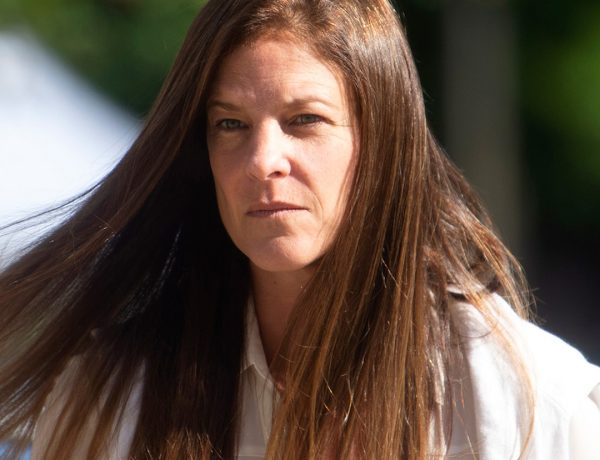In mid-January, news broke that Taylor Sheridan, creator of “dad TV” juggernaut Yellowstone, would be writing and directing an adaptation of Empire of the Summer Moon: Quanah Parker and the Rise and Fall of the Comanches, the Most Powerful Indian Tribe in American History, a 2010 book by S.C. Gwynne about the former Comanche chief.
While this isn’t Sheridan’s first rodeo when it comes to incorporating Native American storylines into his projects — his film Wind River (2017) tackled the missing and murdered Indigenous women crisis, and the Paramount Network series Yellowstone, along with prequels 1883 and 1923, dives into issues such as Native boarding schools and land rights — it is his first project with creative control surrounding the history of a particular tribe and arguably its most prominent chief.
As with news of his previous projects, Native Hollywood had thoughts.
“I rolled my eyes so hard, they almost popped out of my face,” Lakota actress/writer Jana Schmieding, who starred on the Peacock series Rutherford Falls, told Yahoo Entertainment. “It’s laughable that he continues to think that he’s the right person for this job.”
As a white man who has been criticized for repeatedly portraying Native stories through a white lens and without hiring Natives in key roles like producer, director or writer, and even going so far as to cite Wind River’s influence in changing a law affecting Indigenous women, Sheridan has arguably opened himself up once again for criticism from some in Native Hollywood.
“He shoots on his own ranch. And he uses his own horses. You know, he’s really making a dime off of our stories,” Schmieding added.
The actress, who has also appeared on the Native-led series Reservation Dogs and Echo, is referring to Sheridan’s use of his 6666 Ranch in Texas, which, at more than 266,000 acres, is nearly twice the size of Chicago. To shoot Yellowstone on the property or at one of Sheridan’s other ranches, Paramount reportedly pays the showrunner as much as $50,000 a week, according to the Wall Street Journal. And his horses? They can cost $2,000 per head, the outlet reported.
That’s in addition to his work as executive producer, director, writer and sometimes star.
“Why are we letting this happen when [Native people] have so little opportunity in the industry still, and the shows that we have had are critically acclaimed but they don’t get the kind of attention that his shows get? They don’t get platformed to the same degree. We do not make the same amount of money that he makes,” Schmieding said. “It’s problematic on so many levels.”
Kiowa Gordon, a Hualapai actor who stars on the AMC+ series Dark Winds, was more blunt.
“I think Taylor should stay out of Indian country,” he told Yahoo Entertainment.
Many other Native industry members spoke out in comments on social media posts, expressing their frustration and other emotions.
With the critical success of shows like Reservation Dogs from Seminole/Muscogee co-creator Sterlin Harjo; Prey from Comanche producer Jhane Myers; Dark Winds from Cheyenne and Arapaho executive producer Chris Eyre and Hunkpapa/Lakota executive producer Zahn McClarnon; Rutherford Falls from Diné showrunner Sierra Teller Ornelas; and most recently, Echo from Diné executive producer Sydney Freeland, many in Hollywood are asking why Native creatives aren’t shepherding a project like this instead.
Nocona Burgess, who is a Comanche artist and the great-great-grandson of Quanah Parker, told Yahoo Entertainment that he first heard the news through his family’s Parker reunion Facebook group.
“A big ‘ugh.’ And ‘here we go again,’” Burgess said about his initial reaction. “I kind of joked on the page. [Family members] said, ‘Oh, he purchased the rights to the movie,’ and I said, ‘From who?’ I said, ‘It’s our story.’”
The rights, in fact, belonged to the publisher of the book Empire of the Summer Moon and its white writer, S.C. Gwynne, whose take on the Comanche people has garnered its own criticism — particularly for its lack of sourcing from the Comanche themselves.
Gwynne’s research allegedly relied heavily on the written accounts of non-Natives rather than historical knowledge from the Comanche tribe, which citizens argue “demonized” the tribe itself.
Representatives for Gwynne did not return Yahoo Entertainment’s request for comment.
Sheridan’s representatives also did not respond to Yahoo Entertainment’s request for comment. While Sheridan has his detractors, he also has support from Ogalala Lakota actor Mo Brings Plenty, a member of the Yellowstone cast and the show’s American Indian affairs coordinator.
“I’ve worked with Taylor for a number of years, and so I trust Taylor deeply, and I know that [the Comanches’] story and their culture, mainly their culture, and their language is in great hands,” he told Yahoo.
Brings Plenty explained that his role leading the American Indian affairs department on Yellowstone, 1883 and 1923 involves building and maintaining relationships with various tribes.
“If there’s a tribe that is represented, then what I do is, if I don’t already have an existing relationship with the tribal council, I form one,” Brings Plenty said. “And then I go to the grassroots people, because I want to give credit to those that maintain language, traditional knowledge and traditional cultural understanding, because to me, they’re the ones that endured it all. And so it is my way, and our way, of saying thank you to them.”
He added: “So when people condemn Taylor Sheridan, I kind of take offense. … I’m hurt by it, because I don’t like fighting with our own people. And I feel that the more that is told and shared — I don’t care who’s doing it as long as it’s done with accuracy — then the better off we’re all going to be in Indian country.”
Brings Plenty added that allies are crucial to telling Native stories, and he considers Sheridan to be an ally in a way similar to that of Martin Scorsese being an ally for the Osage people in his telling of Killers of the Flower Moon, the Oscar-nominated film that’s been at the center of its own heated debate about who should be telling Native stories. It’s also the vehicle for Blackfeet/Nez Perce actress Lily Gladstone’s historic Golden Globe win and Oscar nomination for Best Actress.
“[Sheridan has] brought forth issues that a lot of society would not have the opportunity to even learn about,” Brings Plenty added, “and he writes it in a way that’s digestible for them. For [Natives], we would like it to be, ‘Here’s all of it.’ But Taylor knows that if he does that, then they’re just going to shut down to it.”
That said, Native creatives like Schmieding would still like to see Indigenous industry leaders helming projects that tell Indigenous stories.
Otherwise, she said, “it perpetuates this narrative that we do not have the capacity, we do not have the talent or skill to tell our own stories, when the reality is that we actually do not have the opportunity. We are being systematically excluded from telling our own stories because of people like [Sheridan], who take up so much space and air.”
She added: “To me, he has enough. He has enough. Pass the mic. Step aside.”
For Burgess, when it comes to a potential movie about his ancestor, he’d like to see people like Comanche/Muscogee filmmaker Jason Asenap or Comanche producer Jhane Myers involved, he told Yahoo Entertainment.
“I’d like to see the Comanche version,” Burgess said. “And just our voice in it.”




